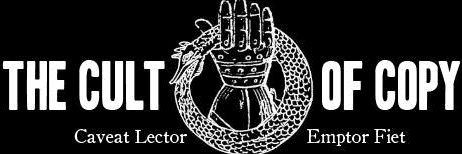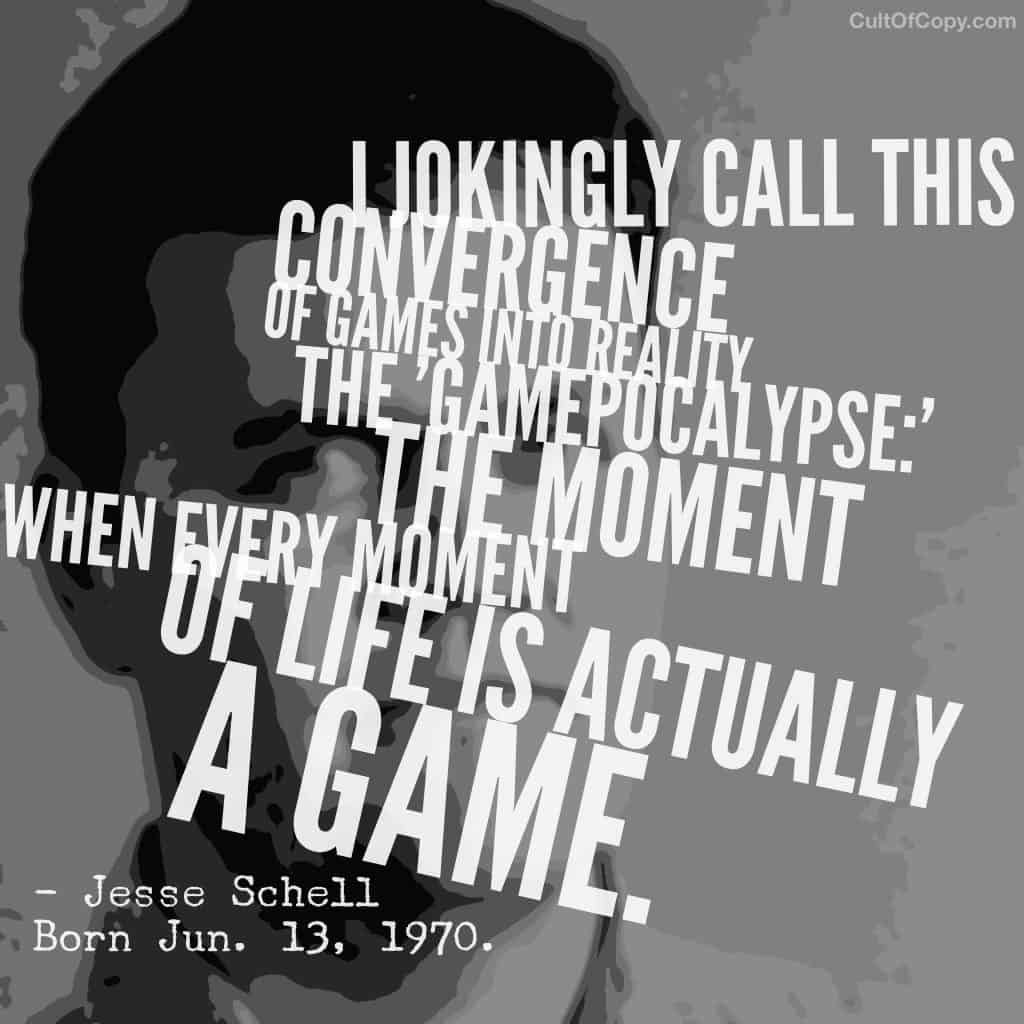“I jokingly call this convergence of games into reality the ‘Gamepocalypse:' the moment when every moment of life is actually a game.” – Jesse Schell, Born Jun. 13, 1970.
Did you know that you can already do this now? Basically you can gamify your own life. It makes a lot of the dull bits of work a lot more fun. And it can make even mundane accomplishments very gratifying.
And thinking of problem solving as a game is a great way to approach product design, as well as site mapping and UX design.
But really, I think gaming is a useful lens through which you can look at any aspect of human experience. And to give you an example, I'm going to use a cheat code and recycle some old (pre-Cult) content I wrote. 🙂
[7 Marketing (and business) Lessons I learned Playing Super Mario Bros.]
1. You can only move forward, never back, so don’t worry about the things that you missed and accidentally let pass you by. There are always more opportunities ahead, so keep your eyes forward, and do better next time.
2. In Super Mario Bros, the finish line for a given level is a flagpole. The higher you jump when you cross it, the higher you score. In life, you’re not in a race against anyone but yourself, so you should pause, reflect, and aim high. Don’t rush needlessly, and reap the maximum reward for your efforts.
3. In any level of the game, there’s always an easy path and a hard path. But experienced players often discover that the “best” path is the middle – don’t defeat enemies you can avoid, and focus on the treasures right in front of you. Get as much of the easy pickings as you can in your market and power forward instead of puzzling over mysteries that may not be worth the struggle to discover.
4. In Super Mario, Warp Zones allow you to advance through the game quickly by skipping levels. You can quickly find yourself completely out of your element and be doomed to fail because you skipped all the practice that would improve your skills. That’s true in life, too. There ARE shortcuts, but you may not be ready to handle what’s on the other side if you’ve never been there before. Doing it the hard way the first time often gives you the experience you need. Take the shortcut the next time, but not the first.
5. In the game, you can get an unlimited number of chances (lives) to finish the game so you never get a “game over” and have to start again. There are no 1-Ups in real life. If you’re failing, adjust your strategy. You should only allow yourself to fail at something once before you adjust your approach for the second try. You can’t expect to get a different result if you keep trying the same things, and eventually you run out of life without ever winning.
6. In the game, you can find these mystery loot boxes that spit out coins, and you need to QUICKLY keep bashing it until you get ALL the coins out of it. Because if you hesitate, they freeze, and you don’t get every coin you could have. So in business, when you discover an opportunity, quickly and thoroughly maximize it before you move on. But referring back to the earlier lesson, if you do miss it, don’t sweat it. Let it go and be ready for the next one (and there WILL be a next one).
7. At the end of the game, you get to the final castle, you defeat the villain, and you THINK you’ve rescued your beloved princess, only to see the message “Your princess is in another castle”. The final lesson here is that any sense of accomplishment is fleeting, satisfaction is temporary, so always be ready to pursue the next challenge. Feel good about the journey, and think of every accomplishment as a milestone towards bigger and better goals.
So, there you go. A nice little thing about gaming for you. “But Colin, is this list what you really meant to teach us today?”
Lol, no child.
This list serves as an example of what I meant at the start. One day, I couldn’t think of what to write. So I played video games for a bit, and got inspired, and made a game of this idea – can I take the game I just played and spin it into content? Can I come up with multiple tips? Can I push it to 7?
That’s the lesson – in the example. Think of your goals as a game, and reaching them requires strategy, skill, timing, and risk. Make it fun.

